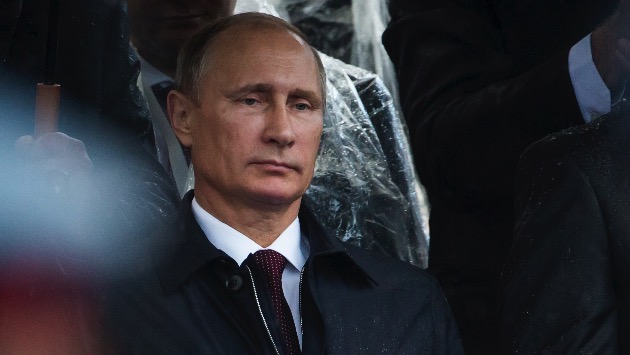dicus63/iStock(MOSCOW) — Russia’s government on Wednesday resigned at the request of President Vladimir Putin after he announced a surprise proposal to make a series of changes to the country’s constitution that would increase the power of its parliament.Also, amid news of the cabinet’s resignation, Putin has selected a new prime minister, Mikhail Mishustin, the head of Russia’s tax agency, Russian state news agencies are reporting.Speaking at his annual state of the nation address in Moscow, Putin listed several proposed amendments for the constitution, which he said would be put to a national vote. The most dramatic change would give Russia’s parliament, instead of the president, the power to select the cabinet — a significant change to Russia’s current constitutional order.Shortly after Putin’s speech, Russia’s prime minister, Dmitry Medvedev announced that he and his cabinet were resigning at Putin’s request. Sitting alongside Putin at a meeting broadcast on state television, Medvedev said Putin would now appoint a new government to help carry through the constitutional reform.”A whole range of fundamental changes to the constitution of the Russian Federation have been designated,” Medvedev said. “When they have been accepted, it will change the balance of executive, legislative and judicial power.” The cabinet was therefore resigning “in order to allow the president to take all the necessary decisions for the realization of the plans,” he said.Medvedev, a long-time ally of Putin who held the presidency for him between 2008 and 2012, will now become deputy chairman of Russia’s national security council.The changes to the constitution strengthen the parliament, known as the Duma, as well as the Federation Council — Russia’s equivlent of a senate — and the Supreme Court. For example, Russia’s prime minister and other ministers are appointed by the president, parliament can only approve the choices. With Putin’s proposals, parliament would now select the prime minister who would nominate his ministers for approval by members of parliament.The president would not have the right to reject a candidate confirmed by parliament, Putin said.The amendments will be put to a national vote, Putin said. The parliament’s deputy speaker, Alexander Zhukov told reporters after the speech, that the vote would likely take place this year, perhaps in September.In his speech, Putin said the changes would help Russia’s parliament take more responsibility in policymaking and that Russian society’s greater “maturity” made such changes necessary.However, most experts said the changes were likely part of Putin’s preparation for when he steps down in 2024, as required by term limits. The changes could allow the Russian leader to remain in power even after leaving the presidency.The constitution currently sets a two consecutive term limit on presidencies, and Putin, who has ruled Russia since 2000, is now in his fourth. In 2008, he sidestepped the term limit by emphasizing the consecutive requirement, temporarily passing the presidency to Medvedev while he became prime minister before returning to office in 2012.But Putin has implied this time he will not repeat the trick and on Wednesday suggested that the word “consecutive” be removed from the constitutional article on term limits.”I know that in our society the constitutional position is being discussed whether the same person shouldn’t occupy the position of Russia’s president for more than two terms in a row,” Putin said. “I don’t believe that this question is fundamental, but I agree with it.”But rather than relinquishing power, the proposed changes to the constitution, experts said, suggested he was preparing a way to retain it.Many noted Putin’s suggestion to strengthen the role of the State Council, a manuever that’s speculated as a way for Putin to remain head of state after leaving office. Another change would grant the Federation Council, Russia’s senate, the authority to appoint the heads of security agencies and also to remove Supreme Court judges.Alexei Venediktov, the prominent editor of the Echo of Moscow radio station, wrote on his social media channel that the moves leave Putin the option to head the State Council, the parliament or the Federation Council, or simply remain president.The changes do not mean a major transfer of power, since Putin and the presidential administration currently dominates Russia’s parliament, which acts as a rubber stamp for the Kremlin’s actions. Putin’s party United Russia holds a large majority and the parliament is stocked with faux opposition parties that actually support Putin.Putin also emphasised that Russia “must remain a presidential republic,” and said that such a huge and diverse country cannot survive without a strong presidency. The president would also retain the key power to fire a prime minister and other ministers, the Russian president said.Some observers interpreted some of the proposed changes would in fact centralise power further around the president, noting the appointment of regional prosecutors by Russia’s senate would give the presidential administration more chance to intervene.”Centralization continues,” Abbas Gallyamov, a prominent political analyst wrote on his Facebook.Another proposed amendment would establish that Russia’s constitution has primacy over international treaties and conventions — a move intended many believe to potentially shield Russia from the authority of bodies such as the European Court of Human Rights.Putin also suggested that constitution now include a stipulation that the minimum wage in Russia not be lower than the poverty line.As he has before in recent years, Putin focused his speech heavily on the need to improve living standards and fight poverty levels. Sometimes he has used it to also deliver menacing diatribes against the West and in 2018 he unveiled a series of super weapons that he claimed placed Russia ahead in any new arms race.But in this year’s address, he avoided speaking about international affairs and instead announced a series of measures to aid families, including providing free school meals to all children for the first four years of their education. Copyright © 2020, ABC Audio. All rights reserved.












